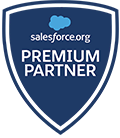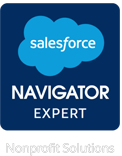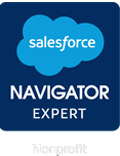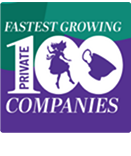How Idealist Consulting Came To Be
Idealist Consulting is celebrating its 10th birthday this year, and we want you to be a part of it! But before we get too deep into celebrating, let’s look back at the path we’ve taken to get where we are today. Before Idealist Consulting was a thriving business on one of the coolest streets in Portland, founder Rob Jordan was an entrepreneur struggling to find direction and purpose. In preparation for the big 1-0, we asked Rob tell us how he came to start Idealist Consulting, and why.
Finding a sustainable and purposeful path
After spending his early adult years climbing a traditional career ladder, Rob found himself disheartened with the private sector, and felt a lack of purpose. He was making money, but that was all he was doing, and it left him wanting something more meaningful. Rob remembered a quote from the ever-poignant Citizen Kane: “It’s no trick to make a lot of money, if what you want to do is make a lot of money.” He was discouraged by the single-mindedness of his situation and knew it was time for something different.
Rob quit his job and decided to work as a climbing guide in western Virginia near Seneca rocks. While he enjoyed the work, Rob quickly realized that not making enough money isn’t satisfying either. At 25 cents an hour, the job simply wasn’t sustainable, so he decided to split the middle, and applied to the Peace Corps.
Finding balance
Rob ended up working as a business development volunteer in Ukraine. He was motivated by the volunteer work he was doing, and also fortified by the fact that he could use it to advance his career long term. Through his experience there, Rob realized you can be pragmatic and idealistic and the same time: “I went in thinking I was going to save the world, but realized I was the one that needed saving.”
There are many journeys to success. The software that Rob was working on to build business processes for Ukrainian nonprofits required him to be a creative problem-solver, and to use the skills he had developed in the private sector to repurpose technology for the greater good. After finishing his assignment in Ukraine, Rob went to graduate school and looked into government work to try and continue bridging the private and public sectors. He was still searching for a ‘third way;’ a means of doing well while doing good.
Rob continued to work internationally after the Peace Corps. He was hired for the Costa Rican branch of Outward Bound to rebuild their business processes. Again, Rob used ‘corporate’ skills and technology to improve the operations--and therefore advance the mission--of a nonprofit. When Rob left three years later, the nonprofit could report on distinct improvements: there was better promotion of their mission, better internal communication, and safer program participants. Rob was beginning to find his stride and a system for his work: enable nonprofits to better serve their missions through implementing business methodologies from the private sector.
Laying the foundation for Idealist Consulting
A few years later, Rob decided to move to Portland where he was put in touch with the Business Ethics Network (BEN). Their mission was getting companies to behave more responsibly. Not only did Rob believe in their mission, but he was confident that better practices would benefit the bottom line of the businesses involved. BEN hired Rob to help them build their computer networking system. Again, Rob learned that private sector technology and practices could be used to create a positive impact. It was here that the idea for Idealist Consulting really began to take shape.
The foundation for Idealist Consulting was the belief that nonprofits could use CRMs to advance their missions. At the time, Salesforce was the best in this field, so while it was difficult to get nonprofits to adopt technology that started with the word ‘sales,’ Rob and an early band of consultants convinced them of the lesson he had been learning for years: nonprofits can use the technology of the private sector for good. Idealist Consulting also helped develop the first iterations of the Nonprofit Starter Pack, a Salesforce platform built specifically for nonprofits.
At this point, the primary mission of Idealist Consulting was to provide nonprofits with as much free or discounted technology as possible, and to deploy it with the efficiency of a private sector company. It was an innovative idea at the time, and ten years later, this idea has caught on like wildfire: Idealist Consulting started as one of the first five companies that helped nonprofits adopt Salesforce, and now there are over 600. Along the way we worked with Hillary Clinton to promote peaceful infrastructure in the Middle East, threw bigger and better Engagement Parties each year at Dreamforce, grew to a team of over 30 consultants and ten Portland-based staff, and helped over 500 nonprofits and 50 businesses launch Salesforce projects.
Looking into the next decade, Idealist Consulting’s new horizons are fresh versions of the familiar foundation: use private sector efficiencies to bring forth public innovation. It’s only by bridging the two and using the best assets of both that we can really make lasting impact.
At Idealist Consulting we weave this idea into everything we do. For us, integrated philanthropy means networking events to connect nonprofits with small businesses, programs that enable companies to donate to nonprofits, social impact awards, and more. Together, these small actions cultivate a new wave of businesses and nonprofits that together, can improve the world for everyone.
If you’re in the Portland area, please join us for our 10th Birthday celebration August 17th. It’s an honor to be with the people who helped us get here; enjoy a great afternoon with beer, barbecue, cake, and the best nonprofit and small business folks around.
















